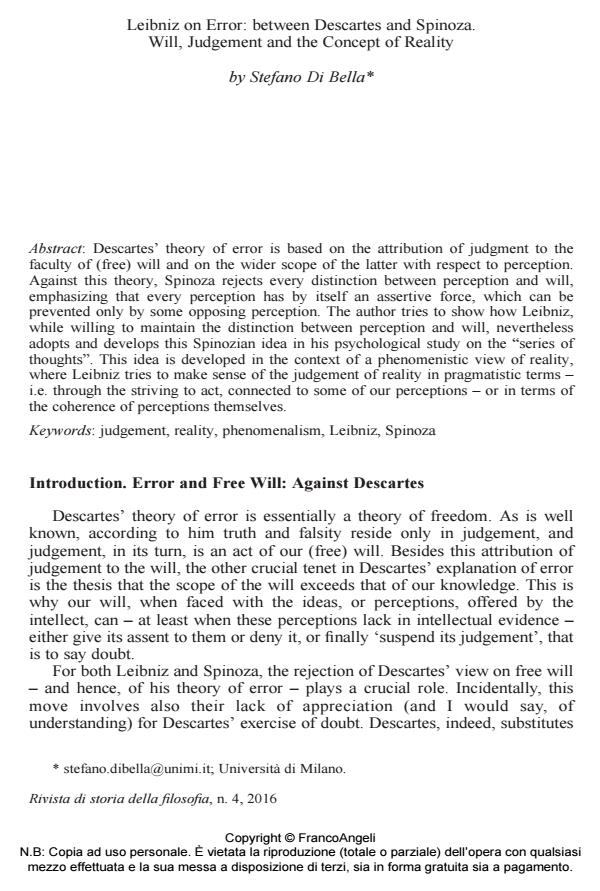Leibniz on Error: between Descartes and Spinoza. Will, Judgement and the Concept of Reality
Titolo Rivista RIVISTA DI STORIA DELLA FILOSOFIA
Autori/Curatori Stefano Di Bella
Anno di pubblicazione 2016 Fascicolo 2016/4
Lingua Inglese Numero pagine 13 P. 713-725 Dimensione file 47 KB
DOI 10.3280/SF2016-004010
Il DOI è il codice a barre della proprietà intellettuale: per saperne di più
clicca qui
Qui sotto puoi vedere in anteprima la prima pagina di questo articolo.
Se questo articolo ti interessa, lo puoi acquistare (e scaricare in formato pdf) seguendo le facili indicazioni per acquistare il download credit. Acquista Download Credits per scaricare questo Articolo in formato PDF

FrancoAngeli è membro della Publishers International Linking Association, Inc (PILA), associazione indipendente e non profit per facilitare (attraverso i servizi tecnologici implementati da CrossRef.org) l’accesso degli studiosi ai contenuti digitali nelle pubblicazioni professionali e scientifiche.
Descartes’ theory of error is based on the attribution of judgment to the faculty of (free) will and on the wider scope of the latter with respect to perception. Against this theory, Spinoza rejects every distinction between perception and will, emphasizing that every perception has by itself an assertive force, which can be prevented only by some opposing perception. The author tries to show how Leibniz, while willing to maintain the distinction between perception and will, nevertheless adopts and develops this Spinozian idea in his psychological study on the "series of thoughts". This idea is developed in the context of a phenomenistic view of reality, where Leibniz tries to make sense of the judgement of reality in pragmatistic terms - i.e. through the striving to act, connected to some of our perceptions - or in terms of the coherence of perceptions themselves.
Parole chiave:Judgement, reality, phenomenalism, Leibniz, Spinoza
- Technological Sustainability and Business Competitive Advantage Michael Fascia, Ellie Koseda, Bryan McIntosh, pp.315 (ISBN:978-3-031-35524-0)
Stefano Di Bella, Leibniz on Error: between Descartes and Spinoza. Will, Judgement and the Concept of Reality in "RIVISTA DI STORIA DELLA FILOSOFIA" 4/2016, pp 713-725, DOI: 10.3280/SF2016-004010